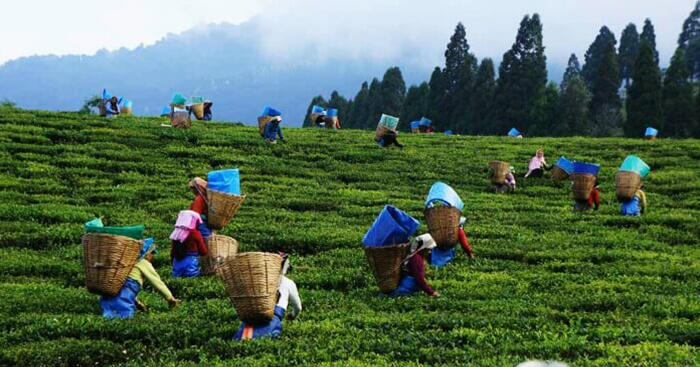Chief Minister of Meghalaya, Conrad K Sangma and Ambassador of Japan to India, H. E. Satoshi Suzuki, inaugurated the 5th edition of the Shillong Cherry Blossom Festival 2021 and the 1st edition of the Shillong Literature Festival at Wards Lake & Polo Ground in Meghalaya. The festival coincides with the actual blooming of cherry blossom flowers in the state, featured special performances from acclaimed artists with jam-packed crowds to see blossoms close to hitting peak bloom. The three-day festival, from 25-27 November 2021, witnessed a footfall of 50000 tourists and citizens.
Meghalaya is home not only to unique horticultural crops and fruits but also to plants of medicinal and ornamental value, like the Cherry Blossom. Primarily found across the east and west Khasi hills, cherry blossoms are also called Prunus Cerasoides and are considered a gift from the Himalayas. The buds start to show around late October and the full bloom begins in the early half of November, especially in the North-eastern city.
The cherry blossom trees in Shillong & Sikkim were planted mostly between 1955 to 1975, under the leadership of the state’s first Chief Secretary, Mr. Nari K Rustomji, who brought seeds from Japan and scattered them in the forested area around his residence. He later ordered the then-District Forest Officer, late Mr. Wahlang, to transplant the saplings to the banks of the Umkhrah near Polo Grounds, Ward’s Lake and Lady Hydari Park. Later, the Forest Department propagated it around the city.
In his brief address, the Deputy Chief Minister, Shri P. Tynsong said, “the festival is a run-up to the State 50th Statehood celebration and dedicated to the people of Meghalaya. The state will witness many more events to mark the Statehood celebration.”
The first edition of the Shillong Literature Festival witnessed a massive footfall of 10 thousand in three days at Wards Lake with “The Hills are alive” performance of Aroha Choir at the inaugural ceremony. The reading Hub gave the option of reading, interacting with authors and donating books, while young visitors aged 18-30 participated in Painting, Illustration, Short story, Essay, Poetry & Photography competition. A panel discussion with authors and artists and hip-hop performances by Khasibloodz, the lit fest also saw a quirky fashion show of recycled material by CatxLizz. Also, four books were launched during the festival including “Marriage” by Devdutt Patnaik.
Dr. Vijay Kumar D, IAS, Commissioner and Secretary, Government of Meghalaya said “Shillong Literature Festival has become a popular entity in art & literature eco-system, making it more inclusive and innovative while promoting music, art and culture. It will provide a platform to writers, readers and authors from the state to connect with literati from other parts of the country.”
Shillong has produced literati like U SoSo Tham & inspired Rabindranath Tagore, Varrier Elwin and others. The literature festival provided a platform for sharing of ideas by contemporary artists by forging ahead of the rich oral traditions. The concluding ceremony had veteran actor Naseeruddin Shah unplugged through candid conversation.
North East has immense talent and the literature festival will provide young minds with a platform to create entrepreneurs out of the artists in a sustainable model where the talent and passion of youth can become his livelihood. From fashion shows, band performances, graffiti artwork to games and local food the festival left citizens, travel enthusiasts and nature lovers mesmerized.
About MEGHALAYA
Meghalaya meaning “abode of clouds” is one of the Seven Sister States of northeast India. The state of Meghalaya is mountainous, with stretches of valley and highland plateaus, and it is geologically rich. About 70% of the state is forested. The Meghalayan forests are considered to be among the richest botanical habitats of Asia. These forests receive abundant rainfall and support a vast variety of floral and faunal biodiversity. The main tribes in Meghalaya are the Khasis, the Garos, and the Jaintias. Each tribe has its own culture, traditions, dress, and language. The majority of the population and the major tribal groups in Meghalaya follow a matrilineal system where lineage and inheritance are traced through women.















